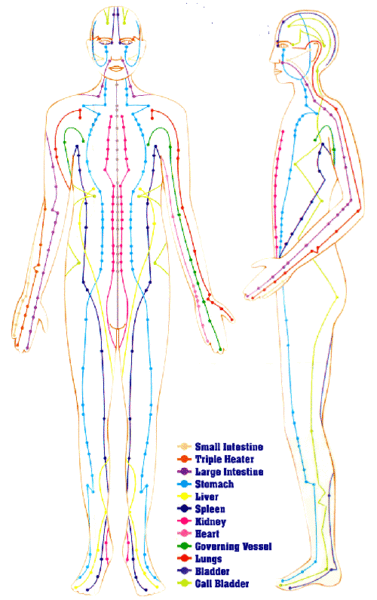Acupuncture and acupressure have been around for thousands of years. And it’s still with us in the modern times because they’re so effective. Any person can stimulate the acupuncture points on the body with ways other than needles. The top 10 Travel Acupressure Points is a therapeutic guide for people on the go. As an Acupuncturist, I find it vitally important to empower others to use the knowledge from ancient East Asian Medicine for themselves.
My aim for this article is to share 10 Power points for travelers, so they can optimize health and well-being to fully enjoy their journey. Health is wealth, especially when travelling. So, read on and find out how simple it can be to use these tips for your wellness & healing travel.
Top 10 Travel Acupressure Points & Tips

Tips on Applying Pressure: When adding pressure, you can use any finger (thumb is often the best), holding it for a minimum of 10 seconds as often as you want. Be sure to breathe deeply and relax while adding pressure. Out of the thousands of points on the body, I will distill it down to Trudy’s 10 Top Acupressure Points for Travel. In explaining these points, please be aware that all are symmetrical on both sides of body. Here are the locations and benefits:
Gallbladder 20 or “Wind Pool” (outside the sternocleidomastoid muscle attachment on neck): This one is best reached by clasping hands together and pressing thumbs on both points on each side of the neck. Benefits: Headaches, neck & shoulder pain or tension, & blurry vision
Pericardium 6 or “Inner Gate” (2 *cun up from inner wrist crease in center between tendons) Benefits: motion-sickness, nausea, vomiting, carpal tunnel & anxiety
San Jiao 5 or “Outer Gate” (2 *cun up from outer wrist crease in center between 2 muscles) Benefits: Boost immune system, ear pain or problems, & clears heat from fever, heat stroke or red skin rashes
World Health Organization Published 361 Classic Acupuncture Points with 48 Extra Points
Large Intestine 4 or “Union Valley” (in dorsal web space of hand, between first & second metacarpals) Contradindication: Pregnancy Benefits: headache, sinus problems, toothache thumb and index finger pain, nosebleeds, hypertension & immune system
Heart 7 or “Spirit Gate” (on inner wrist crease in depression point on ulnar side) Benefits: anxiety, insomnia, heart palpitations, PTSD
Yao Tong Xue or “Lumbar Pain Point” (on hand dorsum between 2nd & 3rd and 4th & 5th metacarpals at base of metacarpals) Benefits: Lower back pain
Stomach 36 or “Leg Three Miles” (3 cun below bottom of kneecap in depression outside tibia border) Benefits: energy, heartburn, hypertension, immune system, or any digestive problem
Spleen 6 or “Three Yin Intersection” (3 cun straight up from inner malleolus) Contraindication: Pregnancy Benefits: digestive or urinary problems, stress, blood sugar imbalances, bloating, & edema
Liver 3 or “Great Surge” (on top of foot, between first and second metatarsal bones. Benefits: anger, tension, irritability, muscle spasms, insomnia, PMS. It’s often used to treat patients with hypertension, & depression.
Kidney 1 or “Gushing Spring” (sole of foot, on anterior third of foot in center) Benefits: fire in aging population, as “fountain of youth,” grounding, centering, tremors, Parkinson’s Disease, PTSD
Healthy Travels
I hope this empowers you to realize how simple and effective these points can be when travelling on the go or anytime for health and well-being. We literally can take our health into our own hands and keep our bodies in balance and optimize health and longevity.
Read More!
The Ultimate Travel Wellness Essentials & Packing List Guide
Motion Sickness Natural Remedies, Acupuncture & Tips for a Healthy Journey
Helpful Altitude Sickness Prevention Tips

